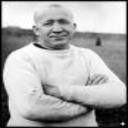Yahoo Answers is shutting down on May 4th, 2021 (Eastern Time) and beginning April 20th, 2021 (Eastern Time) the Yahoo Answers website will be in read-only mode. There will be no changes to other Yahoo properties or services, or your Yahoo account. You can find more information about the Yahoo Answers shutdown and how to download your data on this help page.
Trending News
Does training in multiple martial art styles really make a better fighter?
Does it matter more how many styles you train in, or how hard you train period? If someone learns three of four different styles, would they become better with that or would it actually end up complicating things more? What are your thoughts on this?
10 Answers
- pugpaws2Lv 77 years agoFavorite Answer
I have never met anyone that style hops learning a little here and there that could even fight someone with a few months of steady training with a good instructor. Learning multiple style is very valuable but only after you spend a few years of serious training and have a good base. There is no one that is famous that style hopped. A number of people that are considered very good have come from either training in one style (as it should be done), Or by getting a strong grasp of one style before studying others.
...
Source(s): Martial arts training and research over 46 years, since 1967 Teaching martial arts over 40 years, since 1973 - callsignfuzzyLv 77 years ago
Strictly speaking, training multiple martial arts doesn't make you a *better* fighter. What it SHOULD do is make you a more informed, well-rounded martial artist. Fighting ability may be related to that, but they aren't the same thing.
I would say that training in two or more different specialty systems would make for a better fighter than two or more similar systems, or systems that try to cover all the bases. For example, boxers spend all their time punching and defending against punches; Judo has a strong emphasis on clinching and throwing, and includes some ground work. The fact that both systems have a competitive outlet encourages fitness and a Darwinian atmosphere of having the "cream" (best techniques) rise to the top, which isn't offered by some systems that are looking to make a more academic study of fighting. The specialties of the two systems means one will get a far more in-depth education on, in this example, developing and defending punches, and clinching, throwing, and holding someone, than one would studying a system that generalized, and didn't study these skills as in-depth.
In the end, a martial artist should focus their studies on what they'll be facing in their environment. If most of the violence you face is going to be in the boxing ring, studying Kempo or Hung Gar won't be as optimized as studying boxing; if you're studying for an environment where you'll be facing punches, tackles, and chokes, finding the systems that specialize in those skills will help you more than finding a system that specializes in archaic pole-arms. So frankly, as long as your studying is appropriate to the environment, you're golden.
- TikiLv 47 years ago
Well look at Bruce Lee - he just made it up as he went along basically. He pretty much reinvented quite a few wheels and molded his own form of martial arts. That guy was super bad in every way and he could kick the crap out of any MMA fighter!
But if you were to put Mike Tyson in the ring with Hoyce Gracie (old school again I know but I'm old so deal), Gracie would wipe the floor with Tyson. Brazillian Jujitsu is a mix of a few things and was kind of the kick off of the whole MMA craze.
Knowing a million different fighting styles isn't going to make anyone a better fighter though. You've got to be able to keep a cool head and use all of the tools that you have. So if you get all overwhelmed with adrenaline and go into the subconscious reaction mode that most folks do, you can study everything and still gete your butt kicked.
There's the whole needing to be able to take a punch too - even the best of the best fighters get clocked on occasion. So if you can't find a means of displacing or tolerating pain it's only a matter of time until you catch a serious beating.
Having an arsenal of tactics at your disposal is a way to make yourself a better fighter but I've always looked at it like college. You pick a major, that's your main focus and then you have the general ed, that's a ton of other fighting styles. So nail down one to focus on and really truly develop and study then work on other styles.
Instead of trying to maser a ton, master one of them and find how others tie into it. So instead of trying to recall 30,000 different things at once in a fight you can work on 3 or 4 - efficiency is pretty handy in an a** whoopin' contest.
- ByronLv 57 years ago
Depends what you mean by "learn." I am of the mind that it is optimal to train one art until you get to the level where you can call that you base art. This is the point at which you start to see your art in all of the other ones, even ones that seem vastly different on the surface. When you have reached this level of understanding with respect to principles of all the arts, it is actually a very good idea to branch out and train in some other arts. One style, one teacher, one anything can't possibly encompass all there is to be learned. If you take karate, go take some BJJ. If you take BJJ, go take some Kali. If you take judo, go practice naginata or kendo. If your class doesn't spar often, go take something like boxing where you will get tons of live action to develop your live fighting skills against someone who is trying to actually hurt you.
Start by becoming "martial arts literate" through one art with a great teacher and then you will have been given the gift of truly benefiting more quickly and smoothly from all of those other arts. It is always amazing to see the difference between a complete newbie and someone who has trained another art before. The way the experienced person moves and is able to incorporate teaching comments is vastly superior and allows them to progress much more quickly. Be wary of anyone telling you that their art is complete. No teacher or art is complete.
- How do you think about the answers? You can sign in to vote the answer.
- YolandaLv 45 years ago
Can they reduce, diminish, or disable, the wiring? I'm not sure that I would put it that way. I would lean more to changing or rewiring for the better... because I want to. But if one can happen, then it is only logical that the other can too. Below is my reasoning for the changing whichever way it may go. Instinctual behavior can indeed be changed with consistent physical exercises and psychological influencing. The point of martial art training is to make adjustments to the student's physical instinctual reactions. This is why there must be the consistent training, it is what adjusts the spinal responses to the different types of physical stimuli. This is why even if the person behaves in the manner of fearing any form of fighting will automatically respond once the physical threat has impacted them. (This takes place because the response route runs from the sensation to the spine and back, completely leaving out the brain and it's 'necessary' computations and assessment of the situation.) I hear time and time again, even from the 'masters' of systems saying that martial arts train in the natural behavior for self defense. That is absolutely untrue. If martial arts were natural responses, we would NOT have to work so much at it to become proficient. We would also not have to work consistently to keep the skills gained. I do feel that the adult neurological responses to situations that are lightly threatening to mortally threatening are much more difficult to influence or change, because they are not only born instinct, but also 'trained' instinct based off of the societal influence forming the thought chain and synaptic pathways. In younger people (children) the instinctual pathways can be influenced easier than adults. That is because they are still forming their processes or synaptic pathways. In adults more of a 'brainwashing' approach must be taken to make the adjustments, because they have already formed their 'permanent' thought processes. It is possible, and we've seen it happen throughout society, most notably when dealing with cults, or some form of religious extremism. It is also used in many fiction stories involving military and other secret organizations, which are somewhat based off of rumor of events that have taken place in history. The synaptic paragraph is where I get more of a no to your question. It takes an almost religious devotion to the martial arts, and a 100% commitment to survival to be able to adjust one's own instincts; and this is not something the majority of martial artists do. (NOTE: The majority is all inclusive, the world over. There are many who do, and they would be yes, but there are still enough to be a no.) Ultimately, I don't see martial arts as diminishing or changing a notion such as the one the of the man dying to save his son in a negative manner. I say this because of the moral influence of the most renowned martial art societies, (East Asian). It is taught in these systems that truth, and just actions in all behavior, as well as sacrificing one self for another is honorable, and will repay the soul in this and the next life. People more often than not aspire to these teachings in the martial arts, as opposed to pure self preservation and a solely objective outlook on life forgoing any attempt to help another in need.
- Jas KeyLv 67 years ago
My view is that offense, as long as you have a few that is effective, really doesn’t matter too much. Rather it is the defense and escapes that matter when people talk of multiple styles. As an example think of a boxer with great takedown defense, ground escapes, and can check kicks. (Actually I think that’s pretty much Diaz brothers minus their great ground fighting offensives.) The boxer would have no problem fighting in mma. To make it more “street” you would have to add more defenses to that list, but you get the idea. So do you need to train in multiple arts to be effective? Not really. Should you train defense in all areas of combat starting from projectiles to ground fighting? Yes, that would make you a great martial artist.
But then the contradiction comes in when you wonder how to gain those defenses. The obvious answers are to learn those arts, but you could also train with people who are great at those other areas of combat and pick up defenses from them. This is easier to do in mma gym in my opinion, because you get guys from all different backgrounds to train with.
- 7 years ago
Not really. It's the same idea at being just "kinda good" at a lot of things, versus, being expertly good at a single thing. Most people don't have the time, let alone the energy and/or the attention, to do what it takes to learn two styles at the same time.
Learning multiple styles is really something only an experiences person should do. Definitely not a beginner.
- Anonymous7 years ago
Sure, but you can never beat a 45.
- Anonymous5 years ago
thanks for the answers EVERYONE xx






